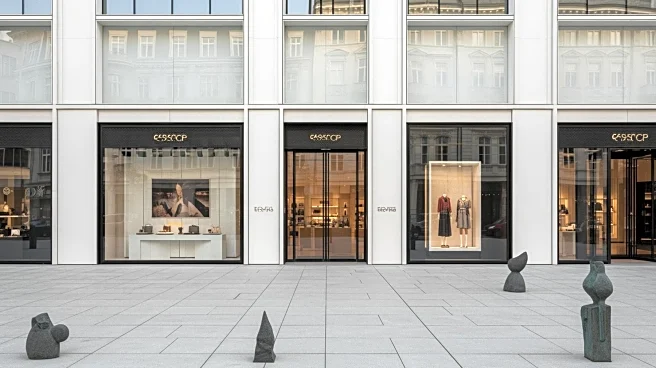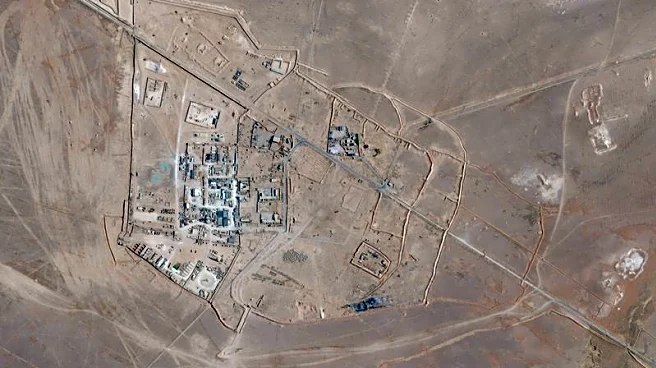What's Happening?
Broadway's revival of Cabaret, staged at the Kit Kat Club, will end its run earlier than planned, closing on September 21 instead of the previously announced October 19. The production has faced challenges in ticket sales, failing to cover its high running costs and the expenses incurred from transforming the August Wilson Theatre into a Weimar-era Berlin nightclub. Billy Porter, who recently joined the cast as the Emcee, has withdrawn due to sepsis, with producers expecting his full recovery. Marty Lauter and David Merino will take over the role for the final performances, alongside Marisha Wallace as Sally Bowles. The production has been a success in London's West End but struggled to replicate this in New York.
Why It's Important?
The early closure of Cabaret highlights the financial pressures faced by Broadway productions, especially those with high production costs. The decision to end the run sooner than expected reflects the challenges of maintaining profitability in the competitive theater industry. Billy Porter's illness and subsequent withdrawal also underscore the impact of unforeseen circumstances on live performances. The closure affects the cast, crew, and theater staff, as well as audiences who anticipated seeing the show. It serves as a reminder of the unpredictability of live theater and the importance of contingency planning.
What's Next?
With the closure of Cabaret, the Kit Kat Club will likely undergo preparations for its next production. The theater community will watch closely for Billy Porter's recovery and potential future projects. Producers may reassess strategies for revivals, considering factors like audience engagement and cost management. The cast and crew will transition to new roles, and theatergoers may seek alternative shows to attend. The closure may prompt discussions on the sustainability of high-cost productions in the current economic climate.
Beyond the Headlines
The transformation of the August Wilson Theatre into an immersive experience reflects a growing trend in theater to enhance audience engagement through innovative staging. This approach, while costly, aims to create memorable experiences that differentiate productions in a crowded market. The revival's focus on Weimar-era Berlin and its themes of political and social change resonate with contemporary audiences, offering reflections on historical and current events. The production's early closure may influence future decisions on immersive theater investments.










